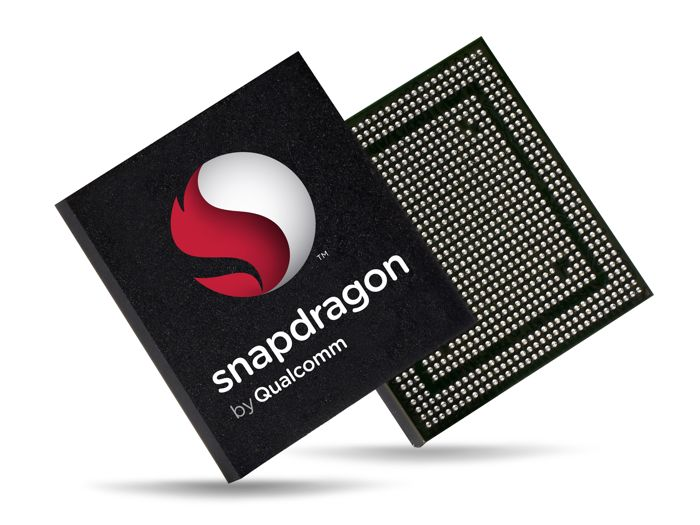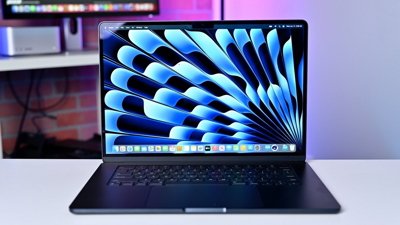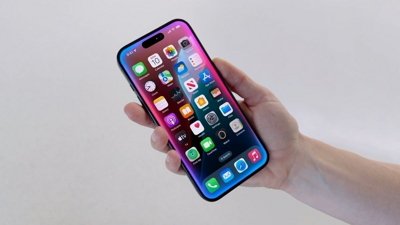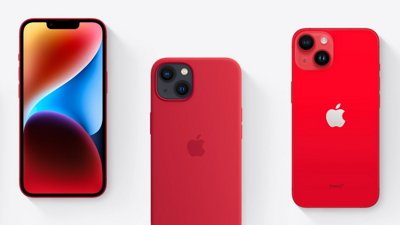Chipmaker Qualcomm on Wednesday revised its revenue forecast downward for 2015, lopping nearly $1 billion off of its high-end estimate and seemingly blaming the change in part on Apple's annexation of market share with the iPhone 6.
Despite booking record revenues for the just-completed quarter, Qualcomm dropped its top-end sales forecast for the rest of the year from $28.8 billion to $28 billion. In its earnings release, the company said this was caused primarily by a "shift in share among OEMs at the premium tier" which has reduced demand for its Snapdragon processors.
That appears to be a thinly-veiled reference to Apple, which has wrenched sales from rival Samsung — Â one of Qualcomm's largest customers — following the release of the larger-screened iPhone 6 and iPhone 6 Plus. The 74.5 million iPhones Apple sold over the holidays were good for half of all mobile phone activations in the U.S. during that time, research suggests.
The iPhone is also grabbing share in China, an important market for Samsung, though one where the company typically ships devices using its in-house Exynos chips. Apple is believed to have sold more smartphones in the Asian nation than any other company in the fourth quarter.
Adding insult to injury, Qualcomm also appears to have lost the contract for Samsung's forthcoming Galaxy S6 as overheating issues plagued preproduction devices. The company expects that its Snapdragon 810, a 64-bit part designed to compete with Apple's A-series, "will not be in the upcoming design cycle of a large customer's flagship device," likely referring to the S6.
The news could be even more bleak for Qualcomm in the future as Apple has been rumored to be considering moving away from the company's baseband chips, which are found in every iPhone. Well-connected analyst Ming-Chi Kuo predicted earlier this month that Intel would win at least part of Apple's baseband business in 2016.
 Sam Oliver
Sam Oliver








 Wesley Hilliard
Wesley Hilliard
 Christine McKee
Christine McKee
 Marko Zivkovic
Marko Zivkovic

 Malcolm Owen
Malcolm Owen
 William Gallagher
William Gallagher
 Andrew O'Hara
Andrew O'Hara








38 Comments
You forgot to mention that well-connected blogger DED already covered this in his award-winning series of articles, entitled: [IMG]http://forums.appleinsider.com/content/type/61/id/54834/width/200/height/400[/IMG]
Apple was just part of that, the 810 chip was the majority. Qualcomm mentioned that their sales shifted towards radio chips, presumably because of Apple's large sales but a large part of the drop is because of the "large vendor".
Umm, It's been debunked more than a few times that the overheating issue was rumor started with Samsung.. to put further pressure on Qualcomm... irony of ironies.. as Samsung has decided to sell their own processor to other OEMs and they wanted to scare off competitors from the Qualcomm version and sell their Exynos to the likes of LG, HTC, etc, instead.. Basically, their mobile phone devision isn't doing as well so now they are playing dirty trying to 'puff up' their SoC chip business. Those overheating rumors were 'hot' on the lips of Samsung reps at CES.. But we now have other OEMS (LG being one) debunking that 'well sourced' rumor.. Samsung knows no bounds when it comes to slander. Sadly, Qualcomm is no Apple and will be much more vulnerable to Samsung's tactics.
In Ming-chi Kuo we trust
OK, maybe I'm missing something, but I don't understand the slant of this article. [QUOTE]For the third quarter, global shipments of Android-based smartphones reached 268 million, up from 206 million for the same quarter a year ago. Those numbers helped the OS win a market share of 84 percent, up from 81.4 percent in the year-ago quarter.[/QUOTE] http://www.cnet.com/news/android-stays-unbeatable-in-smartphone-market-for-now/ If Android phones make up 84% of the smartphone market, and Qualcomm chips seem to be in the vast majority of those devices, they're still selling a s**tload more chips than Apple, right?